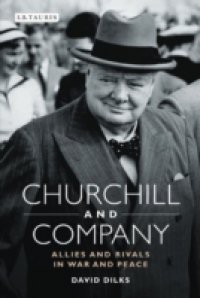Winston Churchill, the great wartime leader and peacetime Prime Minister, is one of the dominating figures of the 20th century. In this stimulating and original book, David Dilks - the eminent historian of modern Britain and a leading Churchill scholar - provides a fascinating source of new discoveries and insights. He shows Churchill, not only as a war leader and international statesman, but also as a private person - with a rich variety of interests, enthusiasms, friendships and rivalries. Churchill's relations with other leading politicians and statesmen of the age - both within Britain and internationally - illuminate his handling of friends and enemies. Sometimes these categories were not easily separated; for a long while, Churchill thought of Stalin as a friend or at least a comrade in arms, and only with extreme reluctance did he come to look upon him ultimately as an enemy. He regarded Roosevelt with admiration and gratitude, yet the balance of evidence suggests that the President felt less warmly towards him, especially after 1943. Dilks casts new and penetrating light on Churchill during World War II, including his dramatic and troubled relationship with Charles de Gaulle - where political problems were softened by Churchill's love of France. The aftermath of World War II, relations with Stalin, the Soviet Union and the Cold War all dominated Churchill's subsequent career. The last chapter draws attention to the influence of 'history' on statesmen and others, not least because no public man of the last century - with the possible exception of de Gaulle - has influenced on Churchill's scale, or with his effectiveness, the writing and the making of history. Whether in or out of office, Churchill's influence has been felt in all areas of British politics and national life. David Dilks brings Churchill to life for all those interested modern British and international history whether student, specialist or general reader.

